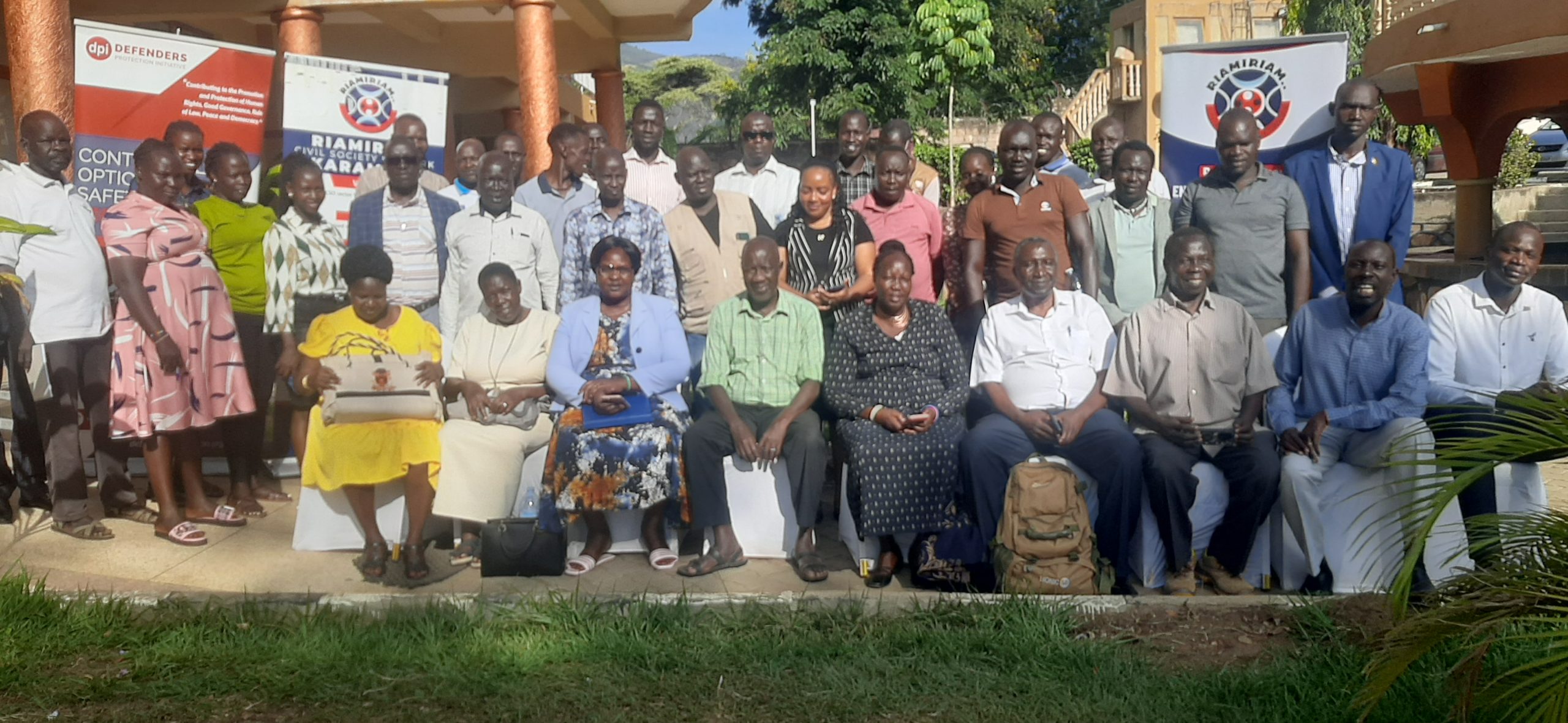
The Silent Exodus: 78% Of Pupils In Moroto District Do Not Complete Primary Education- Survey
Mary Aapun(not real names), a bright-eyed 12-year-old, trudges through the dusty terrain of Napedo village in Rupa subcounty, Moroto District with her books tucked in her dirty looking schoolbag.
When she heard the morning school bell ring, she ran as fast as her tiny legs could carry her to be at school in time. She studies at Napedo Primary School in Rupa subcounty, her bright smile and curious nature a stark contrast to the challenges she faces in her educational journey.
Mary’s story is not unique. According to a recent baseline survey conducted by Riamiriam Civil Society Network – Karamoja, only 22% of pupils in Moroto District complete the primary education cycle. The statistics are alarming, and Mary’s situation illustrates the struggles many pupils face.
The baseline was conducted with funding from the Royal Danish under the 42-month project entitled “Enhanced Governance for Inclusive Development (EGID)”.
The project`s overarching goal is to enhance governance for efficient and inclusive service delivery in Karamoja by 2027 and focuses on increasing citizen participation and engagement in governance processes for effective service delivery, enhancing the capacity of civil society organizations (CSOs) to advocate for better services for the population and Collaboration and Coordination among stakeholders to address service delivery challenges built.
The project aims to enhance the capabilities of designated duty bearers to effectively address citizens’ needs, address their concerns and aspirations, and uphold human rights in a transparent and accountable manner. Additionally, it aims to empower civil society organizations (CSOs) to actively participate in ensuring government accountability through a collaborative coordination manner that results in outcome harvest and leads to impact reporting.
“Riamiriam wants to ensure that we work together for a common goal through engaging duty bearers to discuss the issues identified and proposed by the community-based monitors in their districts and suggest solutions that matter to enhance better service delivery for development”, said Richard Omoding, the Executive Director, Riamiriam Civil Society Network-Karamoja.
Community Oversight Monitors have been instrumental in empowering citizens to hold their leaders accountable. These groups, composed of local citizens, have been trained to track the use of local funds and ensure that they are being used effectively.
According to the baseline survey, the alarming primary education completion cycle in Moroto District is a result of inadequate School Management Committees functioning, supervision challenges as a result of poor funding which affects monitoring of schools by the District Inspectors as well as limited participation by parent who most times take a passive role in education management.
“Sometimes, I fear walking long distances to school because our village is bushy, and when it rains, the roads become impassable,” Mary explains. “My parents struggle to provide for our family, and I’m worried I might have to drop out soon.”
Omoding emphasizes the need for collective action to address this challenge.
“This baseline survey is an eye-opener to the stakeholders, not only from Moroto District but Karamoja as a whole. The future of the young generation here is at stake if we don’t take action to address this challenge. We need to dig deeper to understand why pupils, especially the girl children drop out of school at an alarming rate? We need to ask parents why they are making their children stay at home instead of attending school?”, Omoding emphasized.
Nevertheless, the organization’s survey highlights the importance of supporting education initiatives in Moroto District.
Mr Maxon Ojao, District Education Officer of Moroto, likely shares similar concerns. As the DEO, his role involves overseeing education in the district. Ojao expressed worry about the dropout rates.
“The whole issue is about mindset change. Our people here have a poor attitude towards education. The young boys are made to look after cows while the young girls are made to sit at home to take care of the young siblings, cook, or wash dishes”, Ojao said.
He expressed concern over the poor funding to the education sector saying what is allocated mostly goes to paying salaries and very little is allocated for monitoring, buying textbooks, chalk, among others. “What do you do in such a situation?” he asked.
As Mary navigates the complexities of her educational journey, her determination to learn is inspiring. “I want to become a teacher one day,” she says with a smile. “I want to help my community and make a difference.”
Mary’s story underscores the importance of supporting education initiatives in Moroto District. By working together, we can create an environment that enables pupils like Mary to thrive and complete their primary education.
The statistics are clear: 78% of pupils in Moroto District do not complete their primary education. It’s time for collective action to address this challenge and ensure that pupils like Mary Aapun can achieve their dreams.



